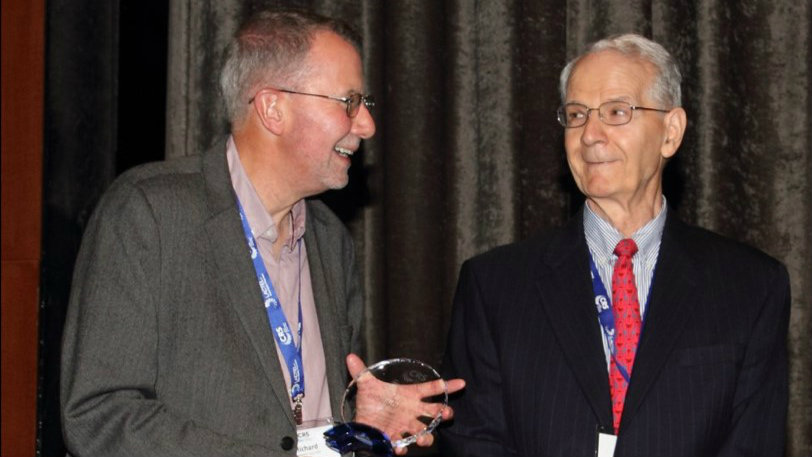Professor Richard Guy from the Department of Pharmacy & Pharmacology has been awarded the 2018 Transdermal Delivery Kydonieus Foundation Award by the Controlled Release Society (CRS), a leading scientific society in the pharmaceutical sciences.
Professor Guy received the award at the CRS annual meeting in New York, as the inaugural recipient recognising a CRS member who has made outstanding and innovative contributions to the field of transdermal delivery science and technology.
The award is particularly special as Prof Guy also received the society’s first Young Investigator Award in 1988.
Professor Guy said: “It’s a considerable honour to be selected as the first recipient. For me, winning the award reflects immensely on the quality of our work over many years, and the efforts of all members of my research group who are responsible for what has been achieved.
“It’s a marvellous uplift for the group and shows that we are appreciated internationally for the novelty and impact of our science. I’d like to thank all the students, postdocs and collaborators with whom I’ve been lucky enough to work.
“A few individuals deserve special mention: Jon Hadgraft, who effectively ‘sensitised’ me into working on skin; Howard Maibach for his unfailing encouragement; Russ Potts with whom I’ve shared some important scientific moments over the years; and Begoña Delgado-Charro, a terrific collaborator and a true partner in all senses of the word.”
A principal focus of Prof Guy’s research is characterising and optimising tools to determine the mechanisms by which drugs and other chemicals can penetrate the skin, and to determine the rate and extent to which these compounds reach their sites of action, within and below the skin.
The long-term objective is then to apply this information to develop high-performance formulations that are safe and effective.
A second area of major interest - and a collaboration led by Dr Adelina Ilie in the Department of Physics at Bath - is in the area of non-invasive (i.e., needle-free) glucose monitoring. Earlier this year the team received international attention when a paper describing their non-invasive blood glucose monitor prototype was published in Nature Nanotechnology .
The Controlled Release Society CRS was incorporated in 1978 as a not-for-profit organisation devoted to the science and technology of controlled release, which encompasses scientific and technical efforts to regulate the spatial and temporal effects of agents in diverse areas including human and animal health as well as non-pharmaceutical areas such as agriculture, cosmetics and consumer products, and the environment.

